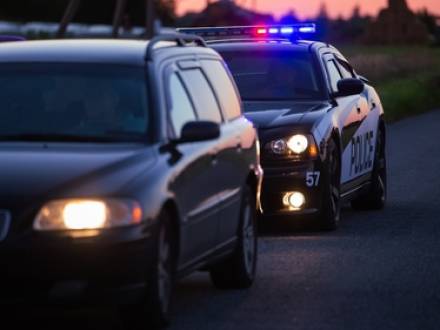Miami Police Pulled Me Over for DUI Without Probable Cause
 Florida law limits when officers can stop a driver, for DUI cases and otherwise. Police must have a valid reason, known as probable cause or reasonable suspicion, before they can legally pull you over. If they do not, any evidence collected after that stop may not be allowed in court. A Miami, FL DUI defense lawyer can review what happened and determine whether your rights were violated under state or federal law.
Florida law limits when officers can stop a driver, for DUI cases and otherwise. Police must have a valid reason, known as probable cause or reasonable suspicion, before they can legally pull you over. If they do not, any evidence collected after that stop may not be allowed in court. A Miami, FL DUI defense lawyer can review what happened and determine whether your rights were violated under state or federal law.
What Is Probable Cause for a DUI Stop Under Florida Law?
Probable cause means an officer must have clear, specific facts suggesting you committed a crime. For a traffic stop, they need at least reasonable suspicion, such as weaving, speeding, or running a red light. To arrest you for DUI, they need probable cause, which is a higher standard.
Under Florida’s Stop and Frisk Law, officers may only detain someone when they reasonably elieve a crime is happening or has already occurred. If the officer cannot clearly explain why you were stopped, it may not meet this standard.
Examples of DUI Stops Made Without Probable Cause
Some common examples of DUI stops that may lack probable cause under Florida law include:
-
An officer stops you just for leaving a bar or restaurant late at night.
-
You were pulled over because you looked "tired" or "nervous."
-
Police stopped you for driving in an area known for nightlife without any traffic violation.
-
You were pulled over for briefly touching or crossing a lane marker once.
-
The officer said you were "driving slowly," even though you followed the speed limit.
-
You were stopped because your car looked like another vehicle.
-
The officer made the stop at a checkpoint that did not follow proper written procedures.
Each of these examples could raise questions about whether the stop was justified.
What Happens if the Police Stop You Without Probable Cause in Florida?
If police conduct an unlawful stop, your attorney can challenge it in court. Evidence gathered after the stop can be excluded through a process called a motion to suppress. This includes field sobriety tests, breath test results, and the officer’s observations.
When a court grants this motion, prosecutors may lose important evidence. Without it, they might have to reduce or even dismiss the DUI charge. These rules exist to protect your rights under the Fourth Amendment to the U.S. Constitution and Article I, Section 12 of the Florida Constitution, which prohibit unreasonable searches and seizures.
How Do You Prove That Police Did Not Have Probable Cause To Stop You?
Proving that police acted without probable cause requires a close look at every detail of your case. Your attorney can review dashcam or bodycam footage, police reports, and dispatch logs to see what the officer actually observed before stopping you. They can find out whether there was a specific, lawful reason for the stop or if it was based on assumptions.
It also matters whether the arrest occurred at a DUI checkpoint or during patrol. Florida law requires checkpoints to follow strict written plans, including clear guidelines on which vehicles to stop. If officers did not follow those rules, the stop may be ruled unconstitutional.
Contact a Miami-Dade County, FL DUI Defense Attorney Today
A DUI charge based on weak or nonexistent probable cause is something we can challenge in court. Every detail matters, from the officer’s first observation to the arrest, and we can use them to fight your charges. Our firm is known for treating clients with compassion while providing aggressive representation. If you cannot come to us, we will travel to you to ensure your case receives the attention it deserves.
Call The Hoffman Firm at 305-249-0090 today to schedule your free consultation with our Miami, FL DUI defense lawyer. We are available 24/7.
















